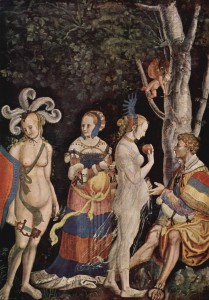Stealing from the fantastic past
 Did you know that Henry VIII, famously infamous Tudor king of England, was the first English monarch to build a public toilet block? Well, he was. And if you’re wondering why he built it, that’s because he couldn’t stop his male courtiers from pissing inside his palace.
Did you know that Henry VIII, famously infamous Tudor king of England, was the first English monarch to build a public toilet block? Well, he was. And if you’re wondering why he built it, that’s because he couldn’t stop his male courtiers from pissing inside his palace.
Hard to believe, isn’t it? Henry was the most magnificent, the most awe-inspiring, the most kingly king England had seen in a very long time. He was charismatic, athletic, intellectual . . . and ruthless. Everyone remembers him for the six wives and the two beheadings. What a lot of people don’t know is that he also had executed – or judicially murdered – more people than any monarch before him, or after. Over two hundred people killed: men, women, young, old, guilty – or simply inconvenient. They died because Henry wanted them dead.
And yet . . . despite his indisputable, terrifying power . . . he couldn’t stop his male courtiers from pissing inside his palace. On the floor, up the walls, in the corners – they were incorrigible, those male courtiers. And Henry couldn’t stop them. He couldn’t stop the massive thieving by his servants, either. His household budget was always ridiculously in the red because he couldn’t stop his underlings from pinching things, double-dipping, fudging accounts, eating more than their fair share, selling food out of the kitchens.
More power than any man or woman in his kingdom . . . and still, Henry was powerless. An extraordinary paradox, isn’t it? Surprising. Intriguing. (more…)


